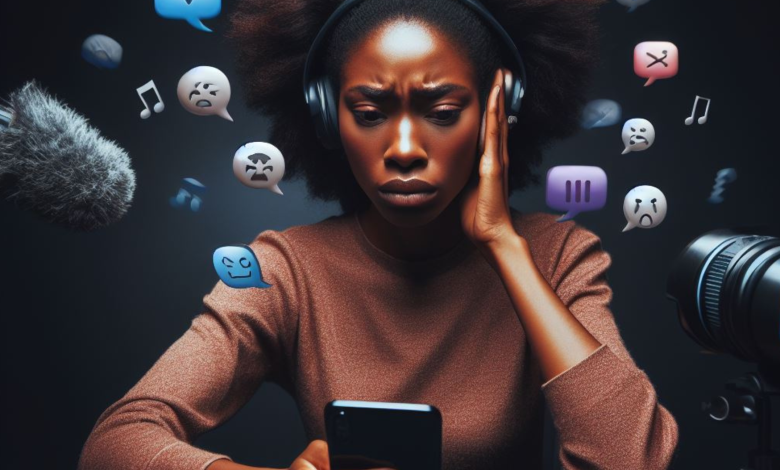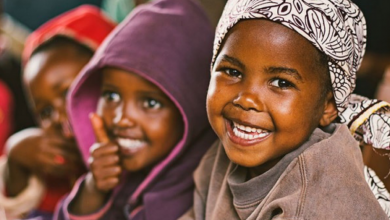AI, anonymity fuel rise of digital violence against women

WHAT began as a space for connection and opportunity is, for many women and girls, becoming a source of fear. Across the world and increasingly here in Tanzania online abuse is rising sharply, fuelled by Artificial Intelligence (AI), anonymity, and weak accountability systems.
As the annual 16 Days of Activism campaign begins, UN Women is raising the alarm over the fast-growing wave of digital violence.
Despite the scale of the problem, 1.8 billion women and girls globally still lack legal protection from online harassment and technology-facilitated abuse, according to UN Women. Only a small number of countries have laws dealing specifically with cyber harassment or cyberstalking.
This gap leaves many women especially those active in public life exposed to abuse that goes unpunished. For Tanzanian women, social media has opened doors to business growth, learning, networking, and self-expression.
Yet the same platforms have also given rise to body-shaming, sexualised editing of photos, fake accounts, and coordinated attacks targeting women leaders, journalists, activists, and content creators.
UN Women notes that globally, one in four women journalists experiences online death threats, while many female public figures face deepfakes, gendered misinformation and smear campaigns aimed at pushing them out of public spaces.
ALSO READ: Youth back establishment of new ministry
UN Women Executive Director Sima Bahous said digital abuse must be taken seriously because what begins online doesn’t stay online. She said online violence often spills into real life affecting work, safety, mental well-being, and in extreme cases, leading to physical attacks.
As technology advances, the risks grow. AI is now being used to create realistic deepfake images, many of which target women. Global research shows that up to 95 per cent of deepfake content online is pornographic and 99 per cent of those targeted are women.
A troubling detail is that many deepfake tools are designed using male datasets, meaning women are disproportionately affected. In Tanzania, the legal framework for dealing with online abuse remains spread across several laws, with none specifically tailored to technology-facilitated violence against women.
The Cybercrimes Act of 2015 is the primary tool used to prosecute cyber harassment, cyberstalking, impersonation, and non-consensual sharing of intimate images. Additional protections come through the Electronic and Postal Communications Act (EPOCA), which regulates offensive or intimidating online content, and the Data Protection and Privacy Act of 2022, which protects personal data and restricts misuse of images.
The Penal Code and the Sexual Offences Special Provisions Act (SOSPA) may also apply when online threats escalate into criminal intimidation or sexual harassment.
However, Tanzania currently has no laws addressing AI-generated abuse, including deepfakes, making legal remedies fragmented and sometimes slow, leaving many women vulnerable as digital spaces evolve faster than legislation.
UN Women urges tech companies to step up by hiring more women, creating safer online spaces, swiftly removing harmful content, and responding effectively to reports of abuse. Activist Laura Bates warns that the impact of online violence should never be minimised.
“The online-offline divide is an illusion,” she said.
Examples include cases where domestic abusers use digital tools to track victims, where deepfakes lead to job loss or family breakdown, and where schoolgirls targeted by online harassment are pushed out of education.
Countries such as the UK, Mexico, Australia and members of the European Union are creating stronger digital safety laws. By 2025, around 117 countries report taking steps to address digital violence, but progress remains uneven.
Experts argue that global cooperation and national approaches reflecting cultural realities are essential for tackling AIdriven abuse. For Tanzania, this means strengthening protections for schoolgirls, university students, entrepreneurs, influencers, and women in leadership who rely heavily on digital platforms.
UN Women also stresses the importance of digital literacy and culture-change programmes, especially for young people who spend more time online and are more exposed to harmful content.
These programmes challenge toxic online behaviour, including the growing manosphere, which promotes anti-women narratives. Feminist networks and women-led organisations often the first responders when online abuse occurs face shrinking space and limited funding.
Initiatives such as the EU-supported ACT to End Violence against Women and Girls programme help sustain these frontline efforts. Ms Bahous further said that technology is not the problem, but rather how it is built and used. “Technology can be a force for equality but only if we build it that way,” she said.
As the 16 Days of Activism runs from 25 November to 10 December, UN Women is urging the public to join the #NoExcuse campaign and take action against digital abuse targeting women and girls both online and offline.





